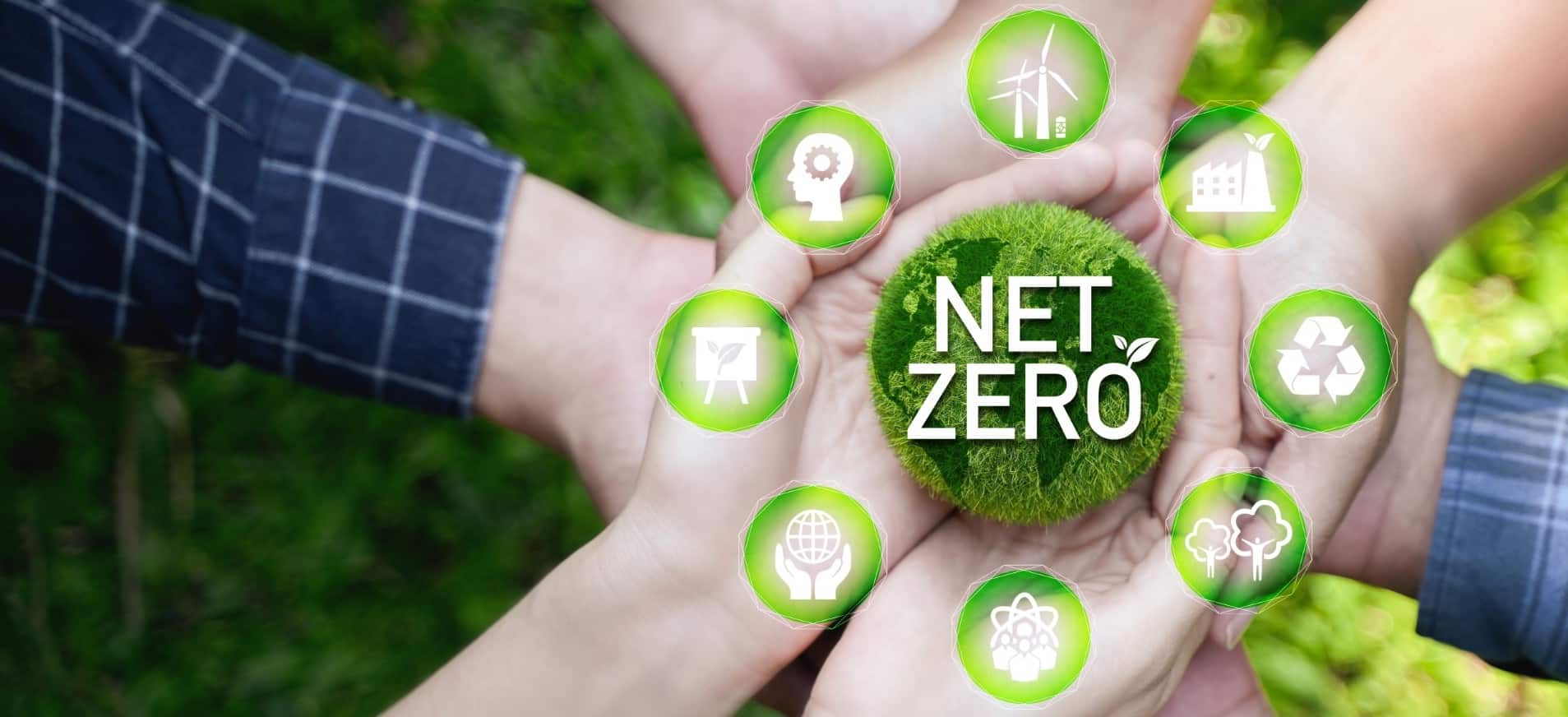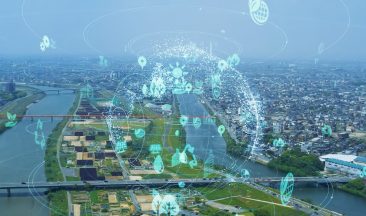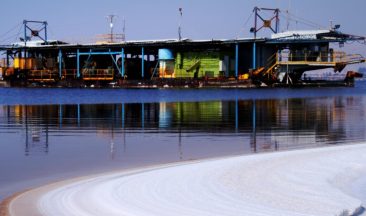There is world consensus that greenhouse gasses are affecting our planet and we must act now. As a leading global specialty minerals and chemicals company serving agriculture, food, and industrial markets, ICL sets the bar for other aspiring net zero emissions companies to help mitigate the adverse effects of climate change.
With so much CO2 being released into the atmosphere currently, it may be difficult to imagine a future with net zero emissions. However, if more of the world’s companies follow our lead and back their pledges with credible action, such as setting their sights on zero carbon manufacturing mission, we can slow down global warming and secure a cleaner, safer future for generations to come. So, what exactly is net zero carbon emission?
What is Net Zero Carbon Emission?
Net zero carbon emission is a process of reducing carbon emissions and dealing with emitted carbon to achieve Net zero. This doesn’t mean that industry is expected to produce goods without emitting any greenhouse gasses, but rather that the gasses which are emitted eventually be captured and dealt with.
Think of it as a balancing act between the production of greenhouse gas and the removal of these gasses from our atmosphere. For every cubic meter of carbon emitted, we must remove one cubic meter of carbon from the atmosphere. Once this balance is achieved, we can potentially slow Earth’s warming to safe levels.
It sounds simple enough until we realize that nearly everything we do emits carbon dioxide, breathing included. But, with our collective zero carbon emission goals and commitment to finding new methods and implementing new technologies in the industry to achieve zero carbon mission manufacturing, we can significantly reduce the amount of pollution we contribute to the planet.
So, how can companies who want to set zero carbon emission goals join the race to zero emissions? One place to begin is by joining us in the Net Zero Coalition.
Net Zero Coalition
The Net Zero Coalition is a U.N.-initiated alliance between countries, cities, industries, and a multitude of institutions that are committed to getting to zero emissions by 2050 by holding themselves accountable for achieving the goal.The coalition has adopted the Paris Agreement’s goal of reducing emissions by 45% by 2030 and by 100% by 2050. With the earth currently being on average 1° Celsius warmer than it was in the late 1800s, the coalition hopes that its collective efforts can keep it from ever exceeding the 1.5° degrees Celsius mark.

The Global Effort to Net Zero
The coalition for zero emissions is growing, but there is a long way to go. China, the U.S., and the European Union make up over 70 nations that have signed on and ICL is one of over 1,200 companies with net zero emissions commitments.
Additionally, the United Nations Framework Convention on Climate Change created a campaign called Race to Zero with more than 1,000 cities, 1,000 educational institutions, and more than 400 financial institutions signing on.
This mission cannot be solved by any single entity. It will necessitate growing this global coalition and adding thousands more signatories in order to truly accomplish a net zero world. But, signing on is just the first step.
Turning these goals into actionable strategies takes dedication, thorough planning, and earnest execution. ICL is positioned to lead by example with our comprehensive planning and commitment to sustainability.
Our Commitment to Sustainability
As one of the five pillars of our corporate social responsibility plan, ICL is committed to improving the environment and facilitating a more sustainable and secure future for the communities we serve through corporate environmental responsibility.
We are committed to the improvement and responsible management of all aspects of sustainability. We continually seek new ways to reduce our environmental footprint throughout the entire lifecycle of our products. In fact, ICL’s specialty products are developed by our passionate and dedicated employees and R&D teams whose technological ingenuity, combined with cutting-edge technology, continually improve operational performance and develop innovative solutions for renewable energy storage and various circular economy solutions.
We are proud to be one of the leading global companies that continually invests in environmental protection and effects reduction, and pollution prevention while increasing the efficiency of production facilities, and improving environmental procedures and measures.
ICL’s Decarbonization Plan
ICL is dedicated to reaching our zero carbon emission goals as it not only makes sense for our efforts to achieve sustainable future growth, but it is our duty to humanity and to the planet. We are so committed, in fact, that we are on track to achieve zero carbon emissions by 2050. Since 2008, we have reduced our sulfur oxide (SOx) emissions by 68%, nitrogen oxide (NOx) emissions by 87%, particulate matter (PM) emissions by 78%, and greenhouse gas emissions by 24%.
Built into our zero emissions by 2050 plan are three major strategic dates to achieve our decarbonization goals: 2030, 2040, and 2050.
ICL´s Milestones for Sustainability
2030
2030 is our first major milestone date for the implementation of various corporate sustainability initiatives that will directly reduce ICL’s impact on the global environment while improving its relationships with employees and local communities.
These goals cover four main pillars that encompass all the main components of any business endeavor: our environment, our people, our communities, and our products. No single pillar can exist independently of the others and all illustrate the vital importance of corporate sustainability.
Our Environment
- Reduce freshwater consumption by 10% in water stress regions;
- Increase circular economy and water-saving impact by an additional 3% of wastewater recycling;
- Absolute GHG emissions Scope 1,2, reduction of 30% by 2030 to become carbon neutral by 2050;
- Increase the share of renewable energy consumption to 50% by 2040;
- Increase the circular economy and water savings by an additional 3%
- Further investment in renewable resources, including wood fiber for growing media and reducing the usage of peat (partially decayed vegetation or organic matter).
Our People
- We actively encourage ICL employees to volunteer for worthwhile projects and aim to increase these activities by 10% relative to the 2019 base rate;
- Promoting personal environmental responsibility and employee volunteering is one of ICL’s core philosophies and a key to building a sustainability vision and culture throughout the company.
Our Communities
- ICL is actively supporting community initiatives by Contributing 1% of income (before tax);
- As part of the wider process of employee education and development, we are promoting personal environmental responsibility among our employees.
Our Products
- Implement circular economy into phosphate, bromine, and potash chains;
- Establish a new business unit at ICL Rotem in Israel. The purpose of this unit will be to create innovative environmentally sound solutions for plant byproducts such as fluorine, silica (silicon dioxide), sulfur, calcium carbonate, and calcium sulfate;
- Make the mass production of alternative proteins economically viable. The goal is to supply the increasing demand for meat alternatives, without compromising on texture and culinary experience of each food product;
- Polystyrene recycling begins with waste insulating materials from the construction industry;
- Phosphate recycling from waste fertilizers turns nitrate waste back into valuable crop nutrients.
2040
2040 is a milestone date for ICL to increase its share of renewable energy consumption to 50%. We see 2040 as a pivotal year when we will have overcome the major challenges and will be clearly within sight of our final goal of being entirely carbon neutral.
For a major company to transform its global operations and achieve 50% renewable energy consumption in a little less than two decades is a massive strategic goal – but we are already well on the way, and are confident that 2040 will be a year of unrivaled achievement.
2050
2050 is the target date for ICL to reach net-zero carbon and become entirely carbon neutral. Carbon neutrality refers to achieving zero carbon dioxide emissions. This can be done by balancing emissions of carbon dioxide with its removal or by eliminating emissions from society.
It should be emphasized that this is a provisional date, based on current technological capabilities and the global ecosystem. The underlying aim is for ICL to be the # 1 eco-friendly company in the industry. This is a concrete and incontrovertible goal that will be achieved.
Building Together a Better Future
Preventing the earth’s temperature from rising above 1.5 degrees celsius from where it was in the late1800s will take a global effort. We are proud to be a part of the U.N.’s Net Zero Coalition to combat climate change and lead the global effort towards net zero carbon emissions.
With the goal to become a net zero emissions company by 2050, we have aligned our whole company around reducing our carbon footprint and have built robust business and operations strategies to ensure that everything we do is geared towards finding new and innovative ways to achieve our zero carbon emission goals.
Our employees are equally passionate about reducing our carbon footprint and they have put in place non-financial KPIs to track our progress. In 2021, we launched an action and investment initiative aimed at aligning the company with changing societal needs. These efforts are complemented by our culture of innovation and our years of proactivity towards society’s sustainable development goals.







